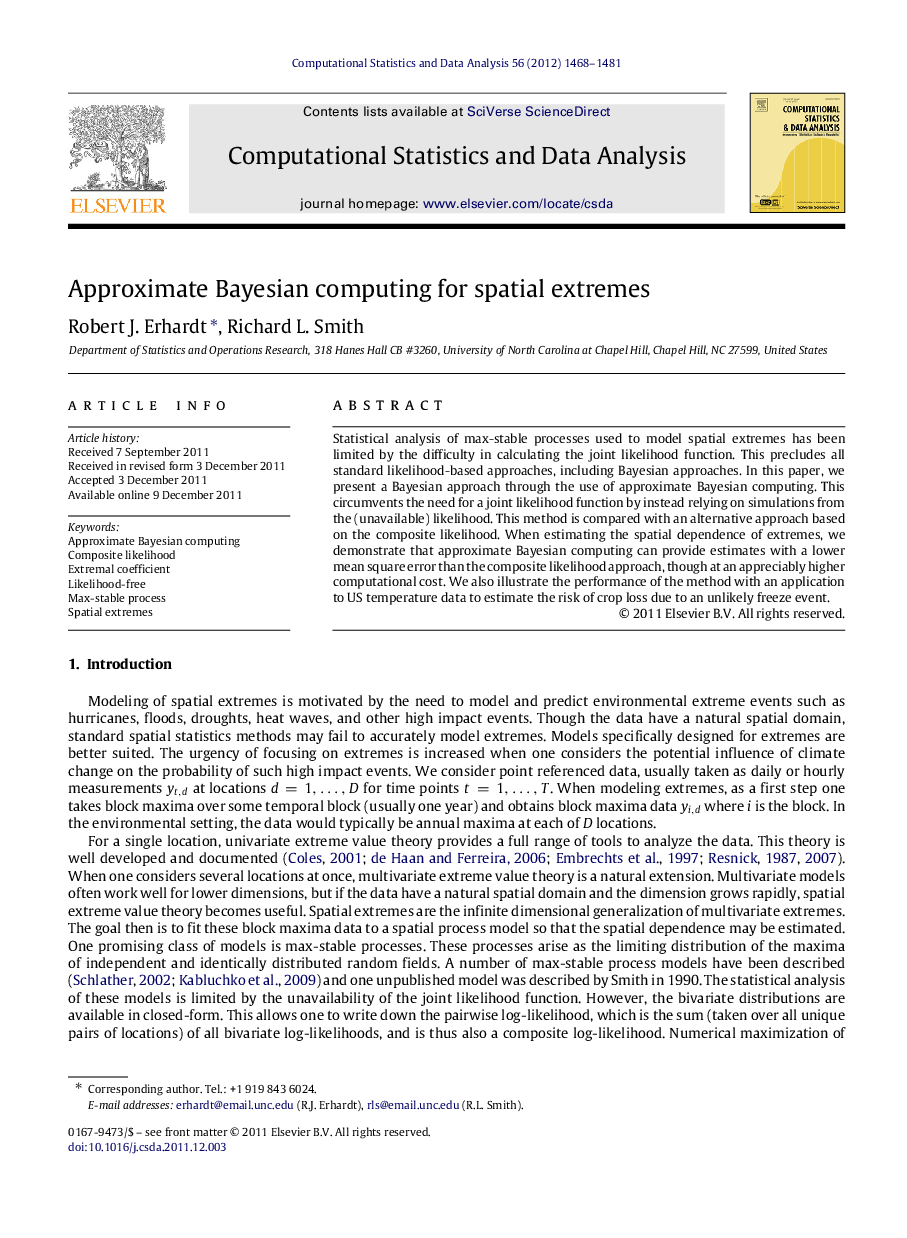| Article ID | Journal | Published Year | Pages | File Type |
|---|---|---|---|---|
| 416440 | Computational Statistics & Data Analysis | 2012 | 14 Pages |
Statistical analysis of max-stable processes used to model spatial extremes has been limited by the difficulty in calculating the joint likelihood function. This precludes all standard likelihood-based approaches, including Bayesian approaches. In this paper, we present a Bayesian approach through the use of approximate Bayesian computing. This circumvents the need for a joint likelihood function by instead relying on simulations from the (unavailable) likelihood. This method is compared with an alternative approach based on the composite likelihood. When estimating the spatial dependence of extremes, we demonstrate that approximate Bayesian computing can provide estimates with a lower mean square error than the composite likelihood approach, though at an appreciably higher computational cost. We also illustrate the performance of the method with an application to US temperature data to estimate the risk of crop loss due to an unlikely freeze event.
